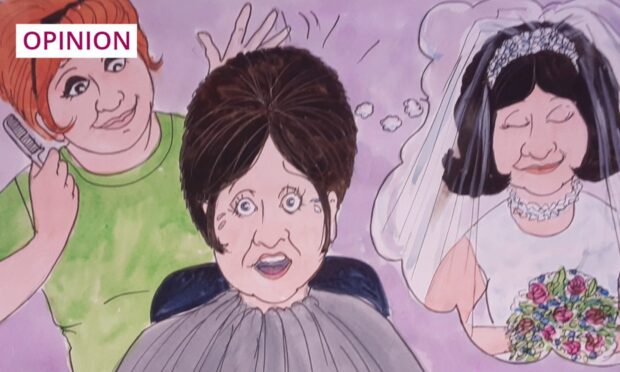Is it possible that doctors are putting us at greater risk from dementia with routine prescriptions for other illnesses?
It’s a chilling thought worthy of a Hollywood science thriller, but leading doctors and medical researchers are convinced this is happening under our very eyes.
They are now battling to persuade doctors and patients to stop reaching for these drugs.
If it was turned into a screenplay, Samuel L Jackson would be a good choice to play one of the crusading medics.
A few days ago the film star backed an Alzheimer’s Society campaign in the UK to challenge popular misconceptions that dementia is an inevitable part of old age. His own relatives were ravaged and it’s a plague touching virtually every family in the UK.
A few months ago I experienced first hand what I only heard about anecdotally up to then: I rang my widowed mother, aged 86, and said, “Hello, it’s David.” She replied, “David who?”
Her cognitive impairment and memory decline has been rapid.
A few weeks ago my wife and I travelled to England to visit her. We spent 90 minutes in her flat and we had an uneasy feeling that she did not really know who we were. Another relative asked her a few days later if she had any special visitors over the weekend, and she said no.
I know this pain will be familiar to many of you.
As Samuel L Jackson said, there are many challenges ahead to slow or stop the disease.
Whereas life expectancy 50 years ago was 69 for men and 75 for women, for a 65-year-old living today it is late 80s. People must have died off before getting dementia in the old days, but now we are in uncharted territory.
Professor Phyo Myint, chair of old-age medicine at Aberdeen University, and Dr Roy Soiza, consultant geriatric physician with NHS Grampian and honorary senior clinical lecturer at Aberdeen University, are leading researchers who challenge current practice over prescribing drugs to older people.
They focus on anticholinergics, which are commonly prescribed for depression, cardiac problems, serious bladder disabilities and Parkinson’s Disease.
Their belief is that the effectiveness of these drugs is questionable, but worse than that – there is a strong body of research linking them with increased dementia risks and cognitive impairment, and with increased falls in old people.
A paper in the British Medical Journal last year said there was a “robust association” between anticholinergics and dementia. Another investigation put the increased risk of dementia at 50% for patients on stronger doses over three years.
The Aberdeen team will explain their findings in a “Medication Can Be Harmful” presentation at the TechFest science festival at Aberdeen University tomorrow night.
Dr Soiza told me they were also playing a lead role in the world’s biggest review trial of anticholinergics in the UK, expected to start in 2021 with large numbers of patient volunteers. Their aim is to prove patients can get better without these drugs.
The irony is that while the NHS faces a spiralling dementia crisis, it might actually be making things worse.
Official statistics in Scotland estimate that more than a third of people over 65 are on anticholinergics, which appear in a myriad of drug names.
I spoke with Dr Soiza over a coffee a few days ago in the Suttie Centre at Foresterhill medical complex in Aberdeen.
Students were milling about excitedly in the sunshine as a new term in medical school began. The joy of youth seemed a far cry from the world of older people desperately battling the ravages of time.
“Anticholinergic drugs are being prescribed on an industrial scale, it’s out of control,” he said. “It is unusual for me to see cognitive and falling over issues in patients who are not on anticholinergics.
“There is a perfect storm of factors, but nothing to counter it. It is why we have this paradox. We need to challenge an evangelical faith in anticholinergics. Our trials are the last piece in a jigsaw – we aim to demonstrate the world does not end when people stop using them.”
A note of caution was sounded by Dr Tom Russ, director of the Alzheimer Scotland Research Centre and a consultant psychiatrist in geriatrics.
“I welcome the planned research as it could make quite an impact, but I would be concerned if patients panicked at this stage and stopped taking their drugs,” he told me. “They should consult their doctors for advice.”
“Anticholinergics can transform lives in certain cases, but as we age we become more susceptible to complications and it is accepted they have a detrimental effect on memory. ”
He added that causal links with dementia was a “$64,000-question” as in some patients the disease might be present already.
“What the NHS is guilty of as a whole is in not reviewing the drugs patients are on in a timely way.”
The Medicines and Healthcare products Regulatory Agency for the UK told me that anticholinergic medicines were recognised as being associated with increased risk of memory problems and confusion in old people, but all studies were “carefully considered to determine any implications for their safe use”.
Dementia is terrifying, but the last point shows families must not be frightened of asking awkward questions.
David Knight is the long-serving former deputy editor of the Press and Journal











